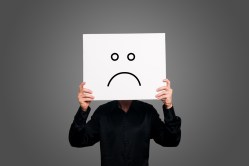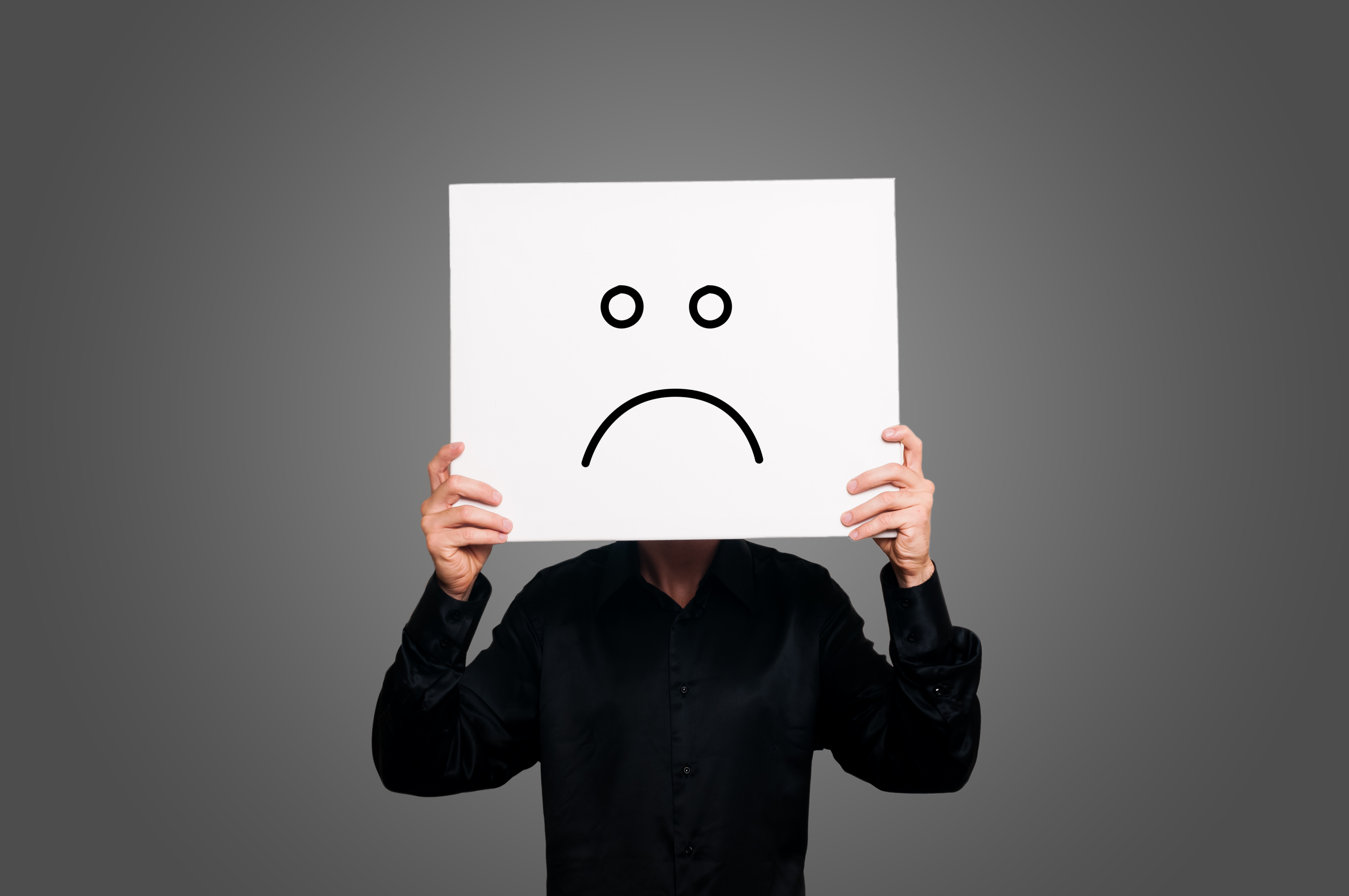
ShutterstockWell, this sucks.
When people talk about “climate impacts,” the images that usually come to mind are broiling heat waves, drought-parched creek beds, dangerous storm surges, the slowly but surely rising sea. These things can seem distant and unlikely to affect most people’s day-to-day lives, but there is growing evidence that the reality of climate change will strike close to home.
Below is a list of things that will be negatively affected by climate change that may not immediately come to mind when someone says “the greenhouse effect”:

Climate change endangers clean water, quality barley, and ample hops. A study from 2009 suggested that the quality of Saaz hops from the Czech Republic has been falling since 1954 due to warmer temperatures. This is true for hops-growing regions across Europe. Smaller brewers like Colorado’s New Belgium Brewing Company understand the seriousness of the problem, as the company’s sustainability director said in 2011, “If you drink beer now, the issue of climate change is impacting you right now. … Craft brewers — the emphasis there is on craft. We make something, and it’s a deeply agricultural product.”

Football practice starts up in high schools every summer, and the hottest part of the year keeps getting hotter. Schools began to notice a trend: Their players were dying more and more frequently due to heat stress, three times as frequently from 1994 to 2009. While increasing heat is not the only factor for these heat deaths (increasing obesity being another), rising temperatures are having serious impacts on the safety of high school and college football. So Arkansas, Arizona, Connecticut, North Carolina, New Jersey, and Texas all started to implement rules that limit practice time when the field gets too hot. Climate also messes with football in between heat waves, as drought has been drying up football fields and killing grass. Switching to artificial turf might make things greener, but because synthetic materials can get up to 100 degrees F hotter than regular grass, tackling becomes even more dangerous than normal.

Maple trees are not featuring as brilliant colors in the fall, and the sap they let out is not as sweet. Researchers think that this has to do with the fact that the amount of time the trees keep their leaves has grown longer, which makes the sap that comes out when syrup producers tap into the tree less sweet. Therefore more sap is required to make syrup, and it tastes different. According to a Cornell study, in 100 years, maple syrup production south of Pennsylvania will likely stop altogether because the trees will not freeze at all.

Walking through the woods, alert hikers watch for small plants with trefoil, shiny leaves: poison ivy. Yet because the itchy plant thrives on higher temperatures and increased carbon dioxide levels, avoiding the plant is only getting more difficult. The potency and spread of poison ivy has doubled since 1960, and researchers say that will double again should the planet reach 560 ppm of carbon dioxide (current readings recently broke 400 ppm).

Up to 25 million coffee growers worldwide (and billions of drinkers) face threats due to increasing temperatures and a climate change-charged deadly fungus. Arabica, the most-consumed coffee species, could go extinct in the wild in 70 years, according to a study by London’s Royal Botanic Gardens last year. This is particularly important because most coffee plantations around the world use Arabica from limited genetic stock, while the wild Arabic strain is genetically diverse, which is essential to the coffee industry’s long-term sustainability.

Chili growers that have traditionally grown peppers in certain places will need new areas to be cultivated in order to remain resilient in a changing climate. The chiltepin in Southern Arizona has recently faced a scarcity due to drought. Tabasco sauce may provide an example of a pathway to resiliency. Though much of the sauce is still made on Avery Island, La., the McIlhenny family that originated the sauce became concerned about having all their eggs in one basket. During Hurricane Rita, the floodwaters came to the foot of their factory. So even though all the salt that is used to mash the peppers for the sauce is mined on the island, and all seed peppers are grown there, the company has sought out other places in Latin America to grow the peppers to ensure that the sauce will still sit on millions of tables if extreme weather or floodwaters endanger Avery Island.

Sheep are susceptible to heat stress like most mammals, and their normal temperature regulation through sweating is made more difficult when they are being raised for wool. If the sheep are active, they find it difficult to get rid of internal heat through a thick fleece. The warmer the animals get, the more their biological functions like wool production and reproduction are affected. Ranchers have found that on hot days, spraying the sheep with water does not help like it does with most animals, as wet wool insulates better than dry wool — the best bet to keep sheep cool is putting them in the shade and applying rubbing alcohol “on the inside of the back legs.”

In 2011, a report found that between 2030 and 2050, a warming planet will seriously cut land normally suitable for cocoa production. Cocoa, which is the primary ingredient of chocolate, is a very heat-sensitive plant. A small increase in temperature would cause yields to drop and prices to soar. Even though cocoa could be planted in cooler areas to adapt to warming, the net impact to the $9 billion cocoa industry would be severe.

Freshwater and saltwater fish are impacted by climate change, as warmer temperatures, drought, flood, and ocean acidification all combine to make life difficult for the swimming vertebrates. Fly-fishing is changing drastically, as ecosystems shift and populations wane. Overfishing is often the problem for fishers on the open sea, but as the oceans warm, the normal fishing habitats have shifted away from the equator. Warm water fish that are usually seen in the Mediterranean have now been spotted off the coast of England. As this happens, fishermen either have to move to new areas to follow their catch, or learn new ways of fishing for new species.

In 2011, former U.N. Secretary Kofi Annan delivered the keynote address at the the third Climate Change and Wine Congress in Spain. What he knew, and the attendees knew, is that wine is particularly susceptible to a changing climate. Most crops find increasing heat waves, flooding, and droughts difficult to endure, but wine is special. Grapes are grown in specific fields for hundreds of years because that particular place is particularly good at producing a particular varietal of wine. When areas get warmer or drier, the grapes change, and then the wine’s taste and color changes. Some vineyards are trying to move uphill to take advantage of thinner, cooler air, but it doesn’t always work. Some varietals are simply trying to move north, and a few vintners have already planted “champagne” vineyards in England.

Wild giant pandas have to learn to diversify their diet beyond eating mostly bamboo. A changing climate will alter the distribution pattern of bamboo in the Qinling Mountains of China, according to a study last year in Nature Climate Change. This changing pattern could leave the giant pandas hungry, as their main habitats could be completely gone in less than 80 years. Pandas could also be threatened by the land that vintners may be looking to take as climate change forces them to move their vineyards north and to higher elevations, according to a study earlier this year published in the Proceedings of the National Academy of Sciences.

A warming climate will make France hot enough by 2050 that the conditions faced by cyclists in the Tour de France will be “brutal.” Extreme weather and high mountain roads also are not a good mix, while spectators who watch the race do not even have the benefit of a cooling wind as they sit still on the sidelines. It’s hard to air condition the French countryside.

As winters get less chilly, some may find momentary relief at the balmy weather. But not apple trees. Apples need a “winter chill” to bloom properly in the spring. If they don’t get it, orchards face lower fruit production, or total crop failure. And trees have a hard time moving north to find land where it still gets cold in the winter. Pennsylvania is the fourth-largest apple producer in the country and growers are getting concerned.

It’s hard to hang ten on a rising ocean. Surfing relies on healthy coasts and regular waves, which are threatened by sea-level rise, saltwater warming, and ocean acidification. As oceans rise farther up the coasts, beaches around the world are grappling with erosion, which seriously impacts local wave patterns. For surfers, the contour of a wave is as important as its size, and the way a wave builds and breaks is determined mainly by the shape of the ocean floor as it meets the shoreline. As sea levels rise, it will change where and how the waves break. Acidifying oceans are dissolving coral reefs, which provide some of the planet’s best surf breaks. More extreme weather might initially create exciting waves, but the destruction they leave behind causes lasting damage to favorite surf spots.

Peanuts are plants that like a certain amount of rain, right at the perfect time. But when drought and flash floods become the norm as the hydrological cycle gets kicked out of whack due to climate change, peanut crops are at risk. Peanuts are mostly grown in the southeastern part of the country, which has faced weirder, wetter, and dryer weather recently.

Last year, more than 100 communities across the U.S. cancelled Fourth of July firework displays due to fears that the pyrotechnics could spark wildfires in drought-riddled states. This is not an idle threat — last month, firefighters in Fort Worth, Texas, received 62 calls about grass and brush fires caused by fireworks, including one structure fire. An ember from the fireworks display in Marana, Ariz., sparked a small brush fire that took a half-hour to douse. New Mexico Gov. Susan Martinez announced a ban on the use of fireworks on state land as the state grapples with extreme drought.
Andrew Breiner contributed the graphics in this post.




